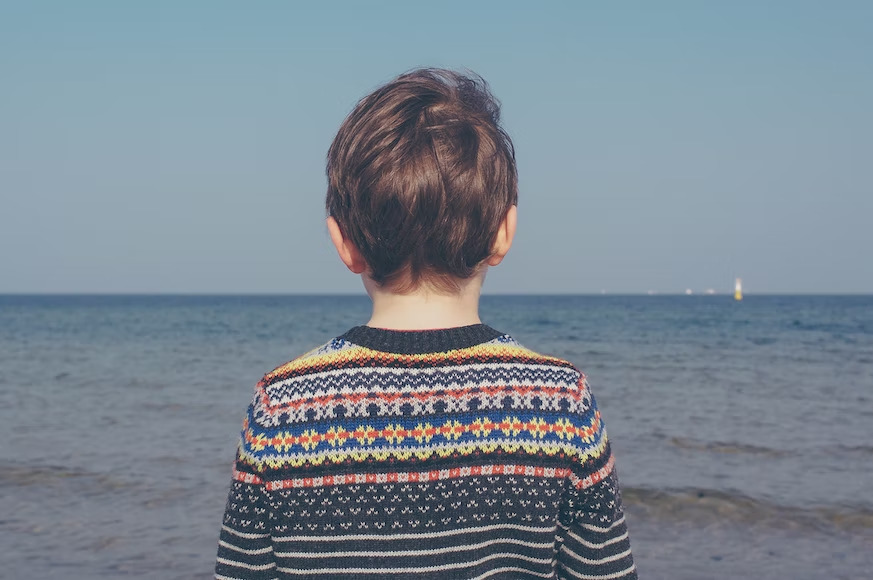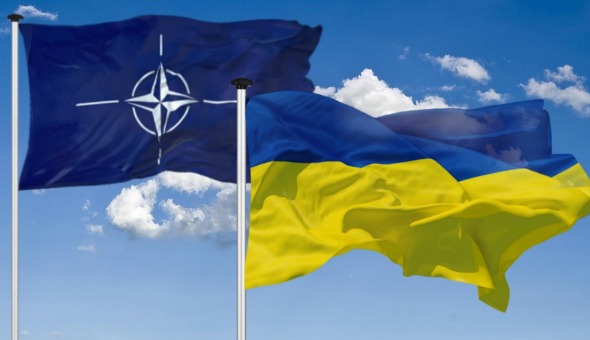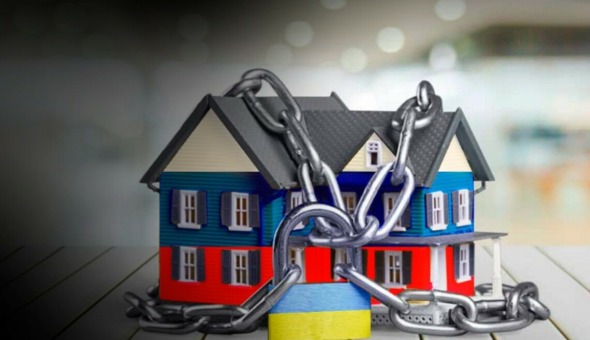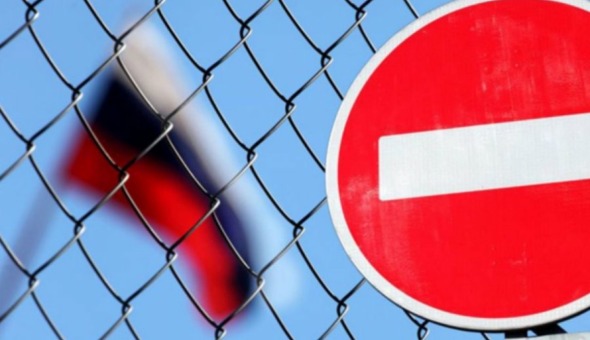
What should be done for the full and happy life of millions of children already today, so as not to waste precious time and ensure effective protection of their rights. Protection of children’s rights is one of the most important priorities in our country, because the attitude towards children, the level of their safety and protection, the state of comprehensive development are indicators of the civilization and humanity of the society.
Leading experts and human rights defenders discussed problems in the protection of Ukrainian children and ways to solve them during the online webinar “European integration for the protection of children’s rights. Who needs Ukrainian children?”.
“In June of last year, Ukraine received the EU candidate country status along with a number of recommendations and tasks to reunite with our European family. We have reached the level of rapprochement with the European Union when the very fundamental questions for which the EU was created are being raised. Actually, these are exactly the European values for which we started fighting back in 2013, – said Marianna Onufrik, analyst of the humanitarian block of the EuroScope project, adviser on advocacy issues of BF “SOS Children’s Villages Ukraine”.
Not for the “tick”: children’s rights and European integration
Ukraine approved a number of legislative initiatives aimed at improving the situation with children’s rights and ratified the UN Convention on the Rights of the Child, as well as joined the three Optional Protocols to the Convention. In addition, the Paris Commitments on the Protection of Children from Illegal Recruitment or Use by Armed Groups were approved.
“At the same time, Ukraine has one of the highest rates of institutionalization of children in the world (about 1.5% of all children), which is a serious concern and requires an urgent solution,” says Marianna Onufrik. – All children, including children with disabilities and from socially disadvantaged groups, have equal rights to live with their families and in the community. Integrated child protection systems, including effective prevention, early intervention and family support, should provide children who are left without or at risk of losing parental care the necessary conditions to prevent separation from their families. The European Strategy on the Rights of the Child was approved by the European Union in 2021. It will be one of the most important normative legal acts that we have to emulate.”
According to her, the European Commission invites member states to contribute to the development of national strategies and programs to accelerate deinstitutionalization and the transition to quality care services in the family and community, including an appropriate emphasis on preparing children to leave care, including migrant children without escort.
“1.5% of Ukrainian children are in the system of institutional education, that is, they do not receive care and education in their families, but they are in institutions, or as we used to say – boarding schools. In 2018, Ukraine approved the Strategy for Reforming the System of Institutional Care and Education of Children, and since then, most institutions have been called boarding schools, lyceums, the word “boarding” has been removed, but essentially nothing has changed.”
Children’s rights in Ukraine. Why we don’t meet EU requirements?
One of the main guarantees of security is the compliance with the standards of human rights and democracy. This is where the rights of the child play a very important role. The main document of international law is the UN Convention on the Rights of the Child.
“Last summer, another session of the UN Human Rights Committee was held, which provided a lot of recommendations to Ukraine, and I am very glad that these recommendations are there. It is they who should become Ukraine’s reference point in matters of bringing the standards of children’s rights to international standards and, accordingly, bringing them closer in this way to the requirements set for us by the European Union, – says Maria Yasenovska, president of the Kharkiv regional foundation “Public Alternative, – Unfortunately, at the level of Ukrainian legislation, at the level of law enforcement, children are not considered as a subject of law, but only as an object of protection. Children are an object of protection and guardianship, not the subject with rights. Children were not in the focus of attention of the Ukrainian political elite.”
According to the expert, for many years Ukraine had failed to implement one of the Committee’s key recommendations – the special Ombudsman for children’s rights.
“We have advisors of the President on children’s rights, but this does not correspond to the so-called Paris principles of such structures. We need a special structure that will purposefully deal with the protection of children’s rights. Another point that is always found in the Committee’s recommendations is interdepartmental work, a coordinating body that would help coordinate the work of the various executive authorities with regard to the rights of the child and other situations with children.”
Also, this Committee emphasizes another important point – monitoring of compliance with children’s rights not only at the level of public organizations, but also at the level of state structures. This will allow you to know what the situation is, what problems there are, what tasks to set before yourself in order to solve those problems.
Why boarding schools are not about protection?
The boarding system is ineffective, it gives the child very conditional protection.
“Children survive as best they can in the conditions of a boarding school, which is not about protection, but only about the fact that it is necessary to fill the beds and work out the budget allocated for this,” says Olena Rozvadovska, head of the “Voices of the Children” BO. – We drag this legacy of the Soviet system in the form of large enclaves, soulless, disenfranchised, into the modern history of European integration. They were created when there was a need for a large number of children whose parents were shot or repressed in order to quickly raise these children to be “correct” communists.
What to do now? We should care and support the biological family.
According to her, when we talk about deinstitutionalization, we also talk about the reintegration of those children who are in institutions of institutional care, their return to the family.
“What does it consist of? In support of the biological family. It should all start with the fact that we have to make an individual assessment of the needs of each child and an individual assessment of the needs of each family from which this child came. That is, to assess what needs to be done in the system in order for this child to return to his biological family.”
But in cases where the biological family cannot meet the needs of the child, alternative family forms of upbringing should be considered.
“And we actually have a clear prioritization in the legislation, that is, we know many forms. The first is adoption, which is when a child who is an orphan or deprived of parental care acquires rights as a biological child. The next form is guardianship and care, this is when the child gets into the family of close relatives, or at least people with whom the child previously had contact, so that there is no such stress. Next is a foster family: from 1 to 4 children. Such a professional selection is already being carried out, actually as for adoption, professional training is taking place. And another form is a family-type orphanage for up to 10 children,” says Marianna Onufrik.
There is a myth that in Ukrainian institutions, in those institutions that need to be closed, these are mainly orphans or children deprived of parental care.
“But the situation is reversed, precisely 92% of children have living biological parents… The main reason why children end up in institutions of institutional care in our country is a social reason: poverty, unemployment, when the mother is single, that is, parents are unable to fulfill their responsibilities. They either give them up voluntarily, or they take these children away from them.”
It is worth noting that Ukrainians are in no hurry to adopt children. And not because they don’t want children, future parents are afraid of a long and complicated procedure.
“In recent years, the number of adoptions in Ukraine has decreased. During a full-scale invasion, that number dropped even further. But the reason is not only Russia’s military aggression, there are complaints that the procedure is complicated, long, and it is very difficult to collect documents, says Kateryna Hryshchenko, an analyst at the “DE JURE” foundation.
According to Marianna Onufryk, during the reconstruction and restoration of Ukraine, it should be taken into account that it is not necessary to restore boarding schools, but to invest in the development of a system of services that will support biological families and the development of alternative family forms.
“We must very clearly articulate to our international partners that we do not need to rebuild boarding schools or build new ones, as is happening now. For example, the regional council of the Volyn region allocates 240 million for the repair of a boarding school. It is better to invest this money in the creation of services: a service of social support, day care not only for children with disabilities, for example, and in support of families of biological and family forms.”
Another modern challenge is to return the children
According to the data of the State Statistics Service, at the beginning of the full-scale invasion, there were 7 million 349 thousand children in Ukraine. 2.3 million of them, children went abroad to European countries.
“Each child is an extremely valuable asset that we should take care of right now and think about how to give back,” says Marianna Onufrik.
Since the beginning of the full-scale invasion, there have been cases of illegal removal of children by the aggressor. According to human rights defenders, from 240,000 to 700,000 children. Currently, they are on the territory of the Russian Federation or Belarus, and everything possible and impossible must be done so that the children return home.
According to Daria Kasyanova, Head of the Board of the Public Union “Ukrainian Network for Children’s Rights”, on the “Children of War” website, there are official figures – these are 16,220 children who are considered missing or abducted.
“But we see when we return the children that the number of children will be higher. As for the categories of children who are deported or transported to temporarily occupied territories, first of all, these are children in institutions, residential institutions, but this is a small number of children, compared to other categories of children. And now we can even say that there are several cases when children who were in residential institutions and were deported to Russia or taken to temporarily occupied territories were returned. The second group is the children who really lost their parents and were taken to Russia. The third group of children are those who were sent to camps. The fourth group, the most difficult, are children who, since the beginning of the war, remained in the occupied territories, for example, Mariupol, when their parents went to defend the country, were captured, the children were with relatives who do not want to return the children. However, there are cases when we manage to return these children as well.”
The numbers are truly terrifying. Thus, experts emphasize that part of the territory of Ukraine is under occupation and only after the liberation of these territories will it be possible to understand the full picture.
Therefore, it is assumed that the number of abductions may be many times greater.
The publication was made within the framework of the MATRA Program with the support of the Embassy of the Kingdom of the Netherlands in Ukraine. Opinions expressed are those of the authors alone and should not be construed as reflecting the official position of the Embassy.



